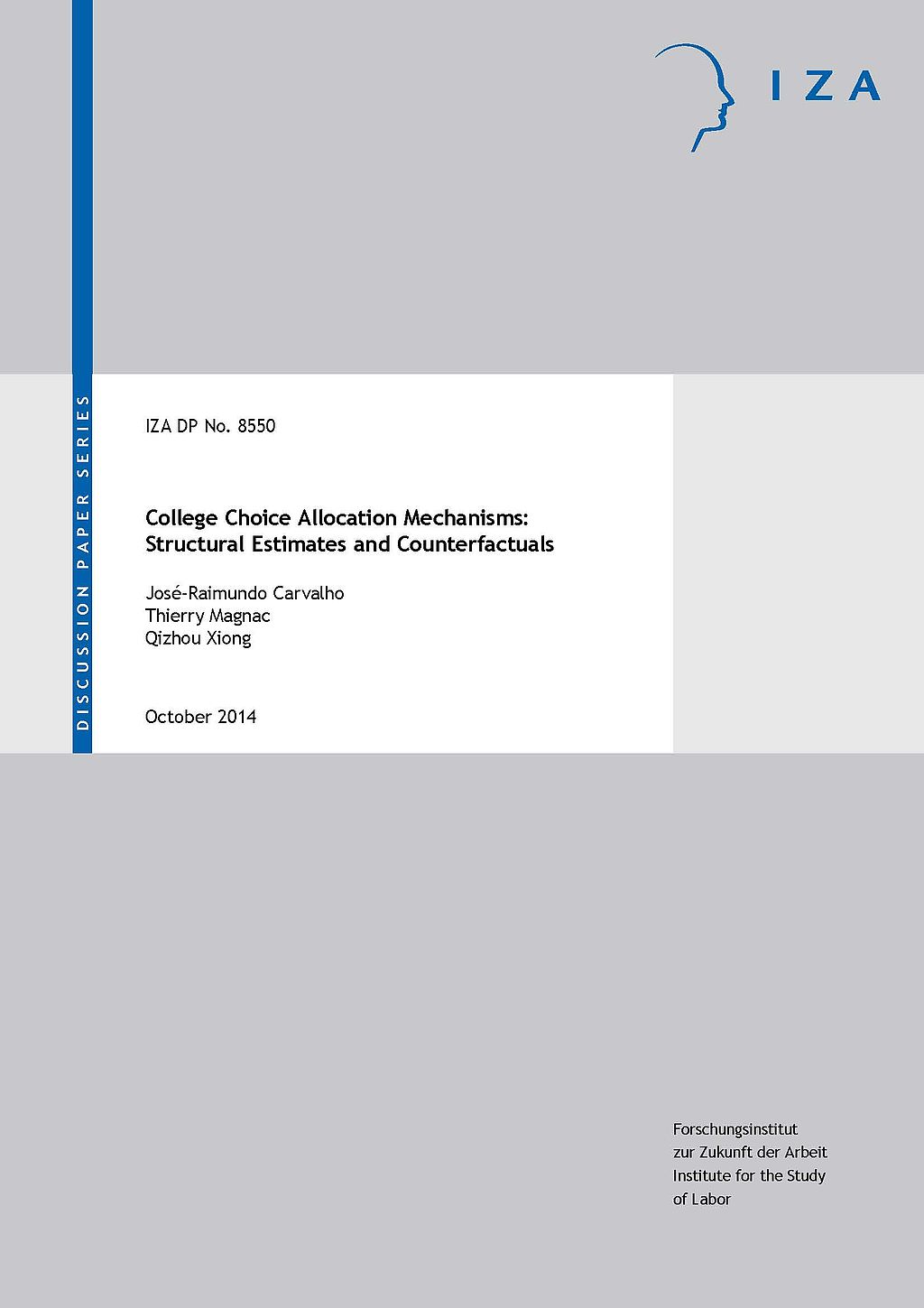
College Choice Allocation Mechanisms: Structural Estimates and Counterfactuals
We evaluate a simple allocation mechanism of students to majors at college entry that was commonly used in universities in Brazil in the 1990s and 2000s. Students first chose a single major and then took exams that select them in or out of the chosen major. The literature analyzing student placement, points out that this decentralized mechanism is not stable and is not strategy-proof. This means that some pairs of major & students can be made better off and that students tend to disguise their preferences using such a mechanism. We build up a model of performance and school choices in which expectations are carefully specified and we estimate it using cross-section data reporting choices between two medical schools and grade performances at the entry exams. Given those estimates, we evaluate changes in selection and students’ expected utilities when other mechanisms are implemented. Results highlight the importance of strategic motives and redistributive effects of changes of the allocation mechanisms.




